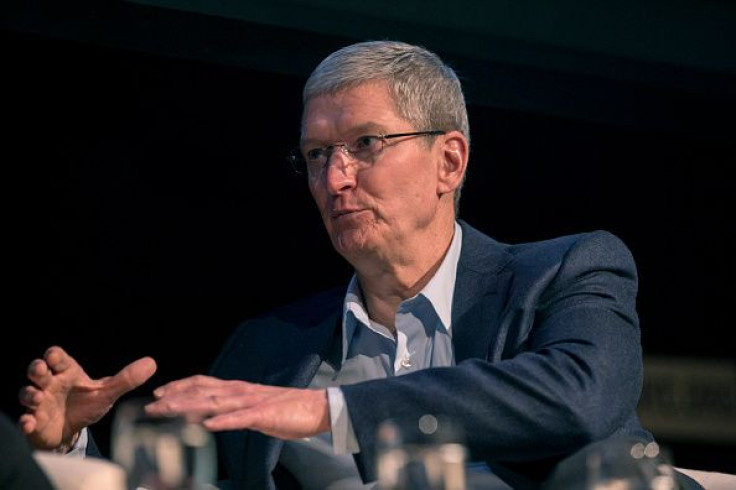Apple CEO Tim Cook Blasts FBI For Blindsiding Company With Court Order ‘We Knew It Was Wrong’

Apple had been cooperating with the FBI for months when it was blindsided by the news: The agency had asked a court to order the company to rewrite the iOS mobile operating system software to allow investigators to crack the smartphone of Syed Rizwan Farook, one of the perpetrators of the deadly terrorist attack in San Bernadino, California, in December.
Indeed, Apple had not heard from FBI probers for 75 days when it learned of the court order in the media.
“[I]f I have a relationship with you, and I decide one day I’m going to sue you, I’m a country boy at the end of the day: I’m going to pick up the phone and tell you I’m going to sue you,” Apple CEO Tim Cook said in a Time cover story published Thursday.
Until the point when Apple executives saw the media reports about the lawsuit, the company believed it was cooperating with the FBI, first handing over the iCloud backup of Farook’s iPhone 5C and then sending a team to help the FBI synch the phone again to get the most recent information. Shortly thereafter, Apple learned the FBI had instructed the City of San Bernadino, the owner of the phone, to reset the password, making a synch impossible without breaking the security feature that deletes data on the phone after 10 wrong password attempts.
That’s when the conversations stopped, at least until the FBI hit Apple with a court order to write a version of its software to defeat this safeguard. “We felt it trampled on civil liberties, not only for our customers but in a broader sense,” Cook said. “We knew it was wrong. It was wrong on so many levels.”
The FBI has framed the battle as a choice between privacy and security. But Apple’s CEO flat-out rejected that argument as “very simplistic and incorrect.” Cook told Time:
“[L]et’s say you just pulled encryption. Let’s you and I ban it tomorrow. And so we sit in Congress and we say, ‘Thou shalt not have encryption.’ What happens then? Well, I would argue that the bad guys will use encryption from non-American companies, because they’re pretty smart, and Apple doesn’t own encryption.”
The U.S. Justice Department argues that Apple could technically tailor the code for just one phone. But Cook shot back, pointing to other law enforcement agencies looking to take a crack at other iPhones they’re not able to get into because of the smartphone’s encryption.
Here’s the Full Transcript of TIME’s Interview With Apple CEO Tim Cook https://t.co/VEkvsc6VE9 @TIME #Technology #… pic.twitter.com/auNBKFRv52
— PiFiZone (@PiFiZone) March 17, 2016
“It’s not about one phone,” Cook told Time. “It’s very much about the future. You have a guy in Manhattan saying, ‘I’ve got 175 phones that I want to take through this process.’”
Despite the Justice Department’s position that this case is about only one phone, FBI Director James Comey acknowledged the precedent set by the court order could apply to other phones in the future when questioned about the issue at a U.S. House of Representatives Judiciary Committee hearing March 1.
In any case, both parties have firmly entrenched themselves for what is expected to be a drawn-out legal tussle. With briefs already submitted to the U.S. District Court for the Central District of California, the next step for both sides is to present oral arguments in court in Riverside March 22. However Magistrate Judge Sheri Pym decides the matter, the losing party is expected to appeal the ruling in a higher court.
Time’s cover story is available online and will be in its print issue dated March 28.
© Copyright IBTimes 2024. All rights reserved.












